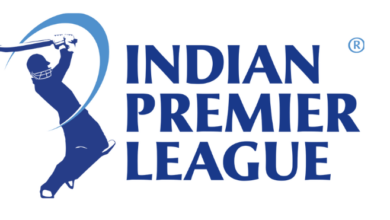
Investment options are the things you can put your money in, whether it’s in stocks, bonds, or even property. There are many different options in the market and it can be confusing as to which one suits your needs the best.
There are 8 different best investment options in India that exist – they are called mutual funds, mutual fund companies, variable annuities, variable life insurance, variable universal life insurance, unit investment trusts (UITs), exchange-traded funds (ETFs), and closed-end funds (CEFs).
All have pros and cons depending on the current economic climate and investor objectives.
1) Stocks
These are shares in a company that are bought and sold. When you buy stock, you become part owner of that company and have a claim on any profit it makes. Though of course, if things don’t work out too well for that particular business, then your investment could suffer too. So you must do your research properly before you narrow down your investment options and company choices.
2) Bonds
Bonds are debt investments issued by governments, municipalities, corporations, and supranational entities.
A bond is essentially a loan that must be paid back at some point (the maturity date). What you receive from a bond is a fixed rate of return on that loan—the yield. This means bonds are interest-bearing securities with lower risk than stock investments.
3) Mutual funds
Like other stocks, mutual fund shares are easy to buy and sell. Investors can purchase shares directly from a mutual fund company or through a broker.
Mutual funds offer investors the ability to invest in a group of securities that are professionally managed by an individual or a team of individuals.
Mutual funds, the best investment options in India allow investors to diversify their investments without making a lot of trades and there’s no minimum investment requirement. Most mutual funds track an index, such as Dow Jones Industrial Average, but some are actively managed by fund managers seeking above-average returns for their investors.
4) ETFs
ETF stands for Exchange Traded Funds. Similar to mutual funds, ETFs have a portfolio of securities that can include stocks and bonds. The primary difference between them is that ETFs are traded on an exchange just like individual stocks. This means you can buy and sell at any time during market hours.
5) Annuities
Employee stock option plans (ESOPs), are a type of employee benefit. These plans allow employees of privately-held companies to invest in their own companies.
As with any other stock purchase plan, stock options have certain tax consequences for both you and your employer.
If you are issued more than 100 shares as part of your compensation, though, special rules apply to ensure that these kinds of grants do not generate substantial tax liabilities for either you or your employer.
6) CDs
Also known as certificates of deposits, CDs are a type of savings account that offers a fixed rate of return. They generally offer low rates, but they also come with more security than other accounts because you can’t withdraw money without penalty before maturity.
The downside is that you don’t have access to your funds until the CD matures—which is usually between three months and five years.
If you need easy access to your cash, look for an online bank or credit union; even some big banks now offer some sort of CD laddering option so that your funds mature gradually over time instead of all at once.
7) Options
Futures are financial contracts obligating a buyer to purchase an asset (or instrument) at a predetermined price at some future date. A futures contract is both a promise to deliver something of value and a means of transferring that value into one or more specified assets. Most futures contracts are traded through an exchange such as NYMEX, CME Group, CBOE, and ICE Futures U.S.
Types of futures include stock indexes (Dow Jones Industrial Average), interest rates (10-Year Treasury Note), currency pairs (USD/EUR), energy products (oil, natural gas), and agricultural commodities. Futures can be traded on margin allowing you to have large exposure in markets with small deposits.
8) Futures
A futures contract is a promise to deliver or receive a particular good or service at a predetermined price. In most cases, you will not be required to put up money to purchase a futures contract, but rather will have to post an initial margin deposit for it.
To maintain your position in the market once your trade is underway, you will also have to make regular variation payments that reflect movements in market price.
At expiry (the date on which delivery of a particular underlying asset must occur), your profit/loss is determined by subtracting your initial margin payment from your final settlement price, less any variation payments made along the way.
With iSelect Guaranteed Future Plan, you can choose how much coverage you want. And we’ll guarantee that the amount will be enough to cover your loved ones’ expenses in case something happens to you. Plus, with our flexible premium payment options and range of benefit packages, we have a plan that fits any budget!
So contact us today on our website or visit us online to get started on protecting your family’s future
Conclusion
Investment options are the products and services you can purchase to grow your money. An investment could be through stocks, bonds, mutual funds, exchange-traded funds (ETFs), or alternative investments such as real estate, commodities, private equity, and hedge funds. There are many investment options to choose from and each has different potential benefits and risks; some may be appropriate for your needs while others may not be, so choose wisely.
All the best!






